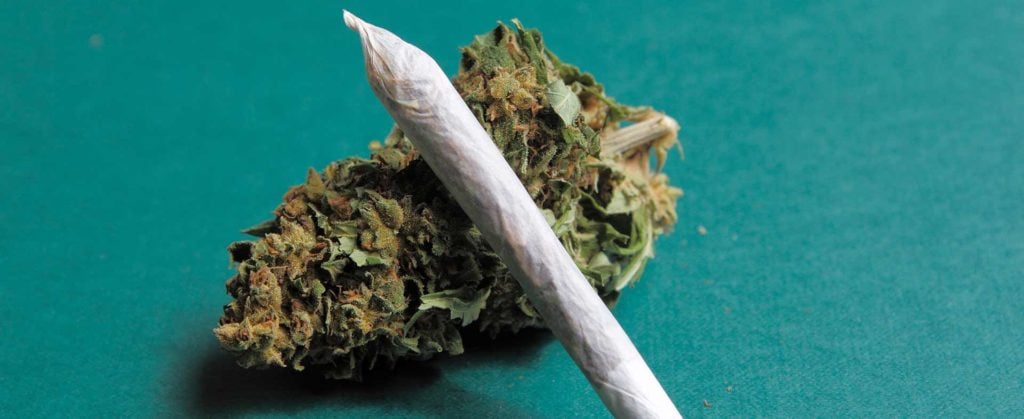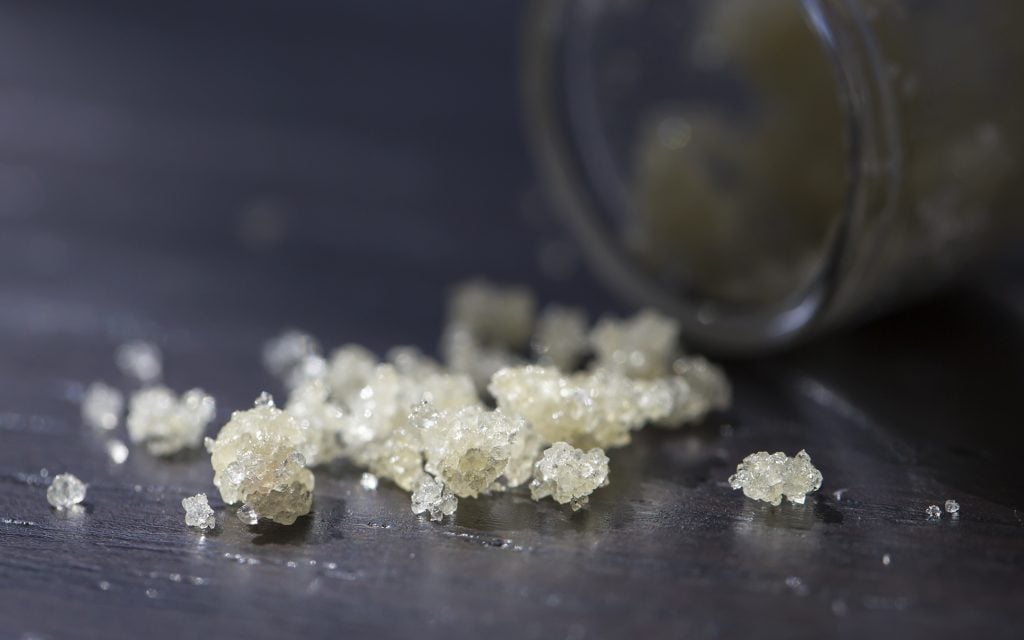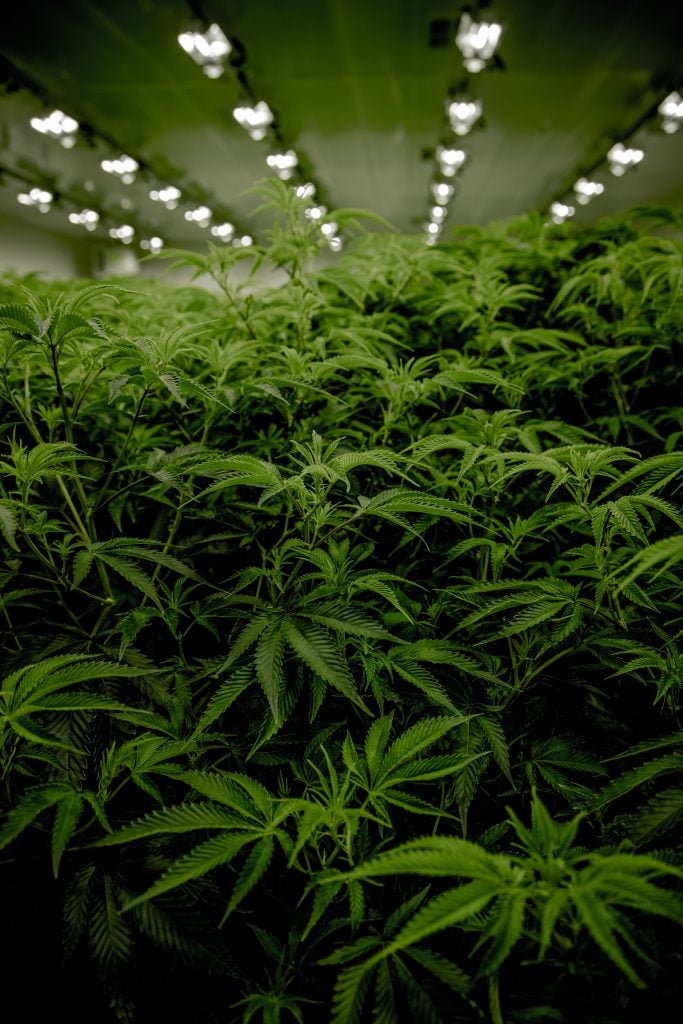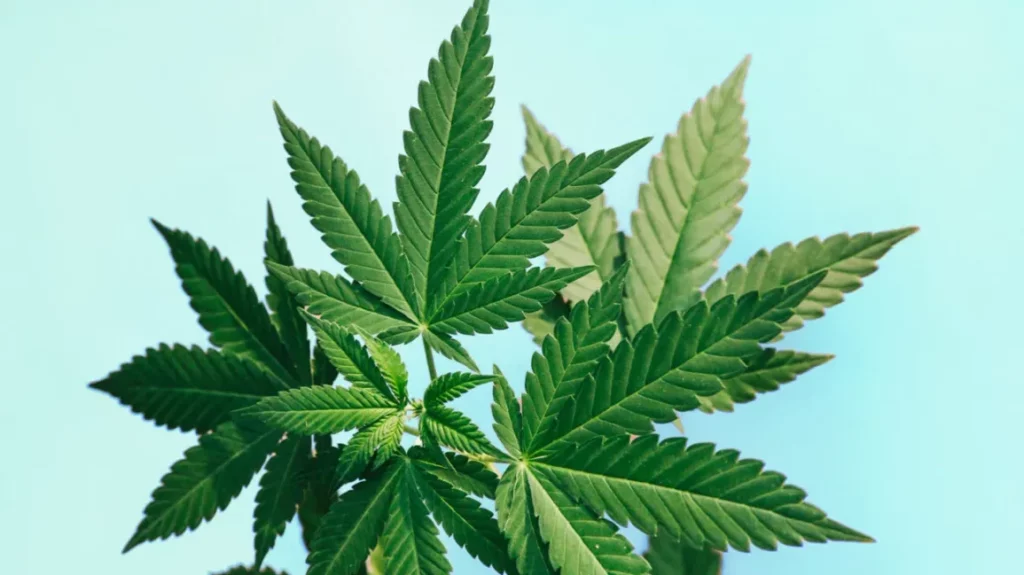Looking to explore the world of high THCA cannabis strains and their effects? This comprehensive guide holds all the information you need. It digs into the intricacies of THCA itself, its psychoactive and medicinal properties, and the risks and side effects associated with high consumption. To help you make the most informed decisions, it outlines key factors you should consider when on the prowl for high THCA strains, including your personal needs, the characteristics and potency of different strains, and the relevant legal aspects.
We’ll introduce popular high THCA strains, how to purchase them from reputable sources, and different consumption methods for high THCA strains. Beyond that, we delve into safety precautions and the phenomenon of tolerance. So, arm yourself with this potent piece of knowledge and head into the world of high THCA cannabis with confidence.
READ: What Are THCa Diamonds?
Understanding High THCA and Its Effects

THCA has intrigued scientists and medical practitioners alike. THCA is the primary psychoactive compound found in cannabis plants, giving individuals a distinctive high feeling when consumed. This compound appeals to brain receptors for pleasure, thinking, memory, concentration, time perception, and coordinated movement.
What is THCA?
THCA is one of the many compounds found in the resin secreted by the marijuana plant. Various strains of plants and cultivation techniques affect the amount of THCA in a cannabis product, resulting in differing potencies and effects on consumers. THCA is one of over 60 cannabinoids, chemicals distinctive to cannabis plants. Notably, THCA is the psychotropic substance in cannabis that creates a unique euphoria and mind-altering experience, making cannabis recreational for some users while offering potential therapeutic benefits to others.
Psychoactive Effects of High THCA
When you consume cannabis, THCA enters your bloodstream and enters your brain. There, it affects nerve cells and leads to higher dopamine levels – triggering a state of euphoria. This high can affect individuals in several ways, including heightened sensory perception (colors might seem brighter, sounds might appear louder), altered perception of time, and increased appetite.
Later, THCA disrupts the hippocampus’s workings – the brain region critical for forming new memories. This interference can impair judgment and affect the user’s ability to process information. Regular high doses lead to a decrease in IQ over time, a decrease in memory and learning abilities, and an increased likelihood of mental illnesses like schizophrenia and depression.
Medicinal Uses of High THCA
Despite the mind-altering properties, THCA has medical and therapeutic benefits. It is often used in medication to address various health conditions, including chronic pain, muscle spasticity, glaucoma, insomnia, and low appetite. On top of that, it is an effective therapy for patients dealing with nausea caused by chemotherapy and anorexia related to HIV/AIDS.
Furthermore, studies show potential uses of THCA for conditions like Alzheimer’s disease by reducing inflammation and blocking the formation of plaques more effectively than currently approved drugs.
Risks and Side Effects of High THCA Consumption
However, THCA does come with its risks and side effects. Short-term risks include a distorted sense of time, increased heart rate, dilated pupils, bloodshot eyes, dry mouth, and motor impairment. Some people may experience adverse psychological reactions like panic, anxiety, and paranoia.
Frequent high-dose usage can also lead to negative psychiatric effects, including a higher risk for developing psychosis or depression. In the long term, overuse can lead to cannabis use disorder, characterized by dependency and withdrawals when attempting to stop. Some studies suggest that high-dose and chronic use earlier in life may result in problems with attention, memory, and processing of complex tasks later in life.
In conclusion, science is still learning about THCA’s full effects and potential uses. Understanding the potential risks and benefits can assist individuals in making informed decisions about consumption. Always consult a healthcare provider for advice on the medicinal use of High THCA.
Factors to Consider When Choosing High THCA Strains

The preference for high THCa strains is getting more common among cannabis users. THCA is the primary psychoactive compound in marijuana that provides a high sensation. When choosing a high THCA strain, it is crucial to consider certain factors to ensure you make the best choice for your needs. These factors include identifying personal preferences and needs, understanding different strains and their potency levels, and considering the legal aspects.
Identifying Your Personal Needs
Identifying personal needs and preferences should be paramount when choosing high THCA strains. The intention for consumption and the desired effects should be well-defined. For some users, the need may revolve around medical needs, while for others, it could be for recreational purposes.
Mirroring your intention to consume is paramount. For instance, if relief from chronic pain is the goal, a strain with both high THCA and CBD might be preferable, as CBD can balance some of the psychoactive effects of THCA while providing pain relief. On the other hand, if the aim is to achieve a strong psychoactive effect, a strain with a high concentration of THCA would be better suited.
The experience level with cannabis is another essential factor to consider. High THCA strains can be quite potent, and for beginners, this might be overwhelming and lead to adverse effects such as paranoia or extreme anxiety. Therefore, it’s mandatory to evaluate your tolerance and experience level with cannabis to prevent any unpleasant experiences.
READ: CBD vs THCA: What Are The Differences?
Understanding Different Strains and Their Potency
Each cannabis strain has different THCA levels, terpene profiles, and potential effects. Therefore, understanding these can assist in making an informed choice about the right high THCA strain.
Indica and Sativa are the two main types of cannabis plants. Typically, Indica strains are known for their physically sedating effects, making it ideal for relaxation or before bed. In contrast, Sativa strains tend to provide more stimulating effects, making them suitable for physical activity, social gatherings, or creative pursuits. There are also hybrid strains that balance Indica and Sativa effects.
Another critical aspect is the potency of the strain. Potency is defined by the THCA content present in the strain. While some strains might have a THCA content of around 15%, others can reach up to 30% or even higher. Determining the potency can help to adjust dosages and prevent any potential undesirable effects caused by overconsumption.
Considering Legal Aspects
Despite the increasing acceptance and legalization of cannabis worldwide, it is essential to consider the legal aspects before purchasing and consuming high THCA strains.
Laws regarding cannabis use and possession differ significantly from one region to another. In some areas, only medical use might be legal, requiring a prescription from a medical professional. On the other hand, some regions have legalized both medical and recreational use of cannabis. However, there are still regions where any possession or use is illegal.
Understanding and staying updated on the existing laws in your respective region is critical to avoid potential legal implications. Ignorance of the law can lead to hefty fines or even jail time, so it’s crucial to be well-informed.
Profiles of High THCA Strains

The cannabis plant boasts hundreds of strain profiles, each with unique attributes, such as scent, flavor, effects and medicinal benefits. Strains can be categorized into three main types; Sativas, Indicas, and Hybrids. These possess varying levels of Tetrahydrocannabinol (THC), one of the primary active compounds found in cannabis. Strains high in THCA are renowned for their potent psychoactive effects, and this article will explore the profiles of these high THCA strains.
Formation and Characteristics of Cannabis Strains
The formation and development of different cannabis strains are highly dependent on the genetic determinants of the parent plants and the environmental factors affecting plant growth. Exposure to different climates, soils, and cultivation techniques can aid in developing distinct characteristics within a strain.
For instance, Indica strains, known to originate from the mountainous regions of Central Asia, are typically shorter, firmer, and feature broad, dark green leaves. The high THCA content in this strain results in a body-centered, ‘stoned’ effect that is excellent for relaxation stress relief and is even used to treat insomnia.
Contrastingly, Sativa plants grow well in equatorial climates, such as Southeast Asia and Central and South America. A taller, slender plant structure with light green, narrow leaves characterizes them. The high THCA content in Sativa strains provides a cerebral, uplifting, and energetic effect, making it suitable for daytime use or stimulating creativity.
Lastly, Hybrid strains are a combination of Sativa and Indica strains, inheriting traits from both parents. They are typically cultivated to achieve a specific balance of plant characteristics, THCA potency, and medicinal benefits.
Popular High THCA Strains and Their Effects
Several high THCA strains have become popular due to their potent psychoactive effects and distinct characteristics. One significant example is the ‘Ghost Train Haze’ strain. It’s among the most potent strains with a THCA concentration reaching up to 27%. Exceptionally effective for treating pain and depression, it has uplifting and psychedelic effects that boost mood and induce euphoria.
The ‘Bruce Banner’ strain, which can contain THCA levels of up to 29%, is another highly potent selection. Its effects are overwhelmingly relaxing, melting away stress and anxiety. It also has a refreshing kick that stimulates creativity and focus.
Understanding Terpenes and Flavors
Terpenes are volatile compounds responsible for the distinctive aroma and flavor of cannabis strains. They work synergistically with cannabinoids like THCA to enhance their therapeutic benefits, a phenomenon called the entourage effect.
Strains high in THCA often possess savory, earthy flavors due to the prevalence of myrcene, a common terpene in cannabis. On the other hand, songs with a sweet, fruity aroma often contain high levels of limonene, which is also recognized for its stress-relieving and mood-boosting effects.
Understanding terpenes is crucial to identifying a strain that fits your preferences in flavor and medicinal benefits. As such, they serve as a basis for guided and informed strain selection, whether for recreational or therapeutic application.
Consumption Methods for High THCA Strains

THCA is a key component of marijuana, responsible for many of the plant’s most well-known effects. While the impact of THCA can be enjoyed in many ways, many consumers prefer to use high THCA strains for their potent and pronounced impact. There are many ways to consume high THCA strains, and the ideal methods will vary from person to person. The most typical consumption methods include smoking, vaping, edibles, and tinctures.
Smoking versus Vaping
The most traditional way to consume high THCA strains is through smoking. Although simple, smoking has a specific ritual, making it a popular choice for many users. When smoking, the THCA is released instantaneously during combustion and quickly enters the bloodstream through the lungs. This method provides immediate effects but can sometimes be harsh on the respiratory system.
In contrast, vaping is a more modern method of consuming high THCA strains. It involves heating the cannabis to a point where it releases its cannabinoids in a vapor form. The user then inhales this vapor. The result is a smoother experience when compared to smoking. Another advantage of vaping is the ability to control the temperature, which can influence the effects of THCA. However, the safety of vaping is still under study, and it might not be suitable for everyone, particularly those with respiratory issues.
Edibles and Tinctures
Edibles offer a unique way to consume high THCA strains. Edibles come in many forms, like cookies, gummies, brownies, and even drinks. When finished, the edible has to go through the digestive system before it reaches the bloodstream, prolonging the onset of effects and extending its duration. It often results in a more intense and full-body high.
Conversely, tinctures are cannabis extracts that are absorbed sublingually (under the tongue). They are an excellent alternative for those who do not want to inhale or consume cannabis. The effects can be felt within 15 minutes, faster than edibles but slower than smoking or vaping. Additionally, tinctures come with an eyedropper for precision, allowing users to manage their dosages easily.
Dosage Considerations
Understanding one’s tolerance and carefully considering dosage is essential for a positive experience working with high THCA strains. Overdoing it might lead to uncomfortable experiences like paranoia or extreme drowsiness.
For smoking and vaping, it’s often recommended to start with one or two inhales and wait a few minutes to see how it affects you before taking more. For edibles and tinctures, beginning with a low dose (5-10mg of THC) and gradually increasing as needed is a safe approach for beginners.
Remember, THCA affects everyone differently, and the best way to find what works for you is through experimentation and mindfulness. Always start low, go slow, and be patient with the process. It’s best to consult with a healthcare professional if you’re new to cannabis or have any health concerns.
Safety Precautions for High THCA Consumption
THCA is an active ingredient found in cannabis. The substance is responsible for the psychotropic effects or the ‘high’ that people often feel when consuming the cannabis plant. Although THCA has several medical benefits, like relieving pain or nausea and even stimulating appetite, consuming high amounts of THCA can lead to complications such as hallucinations, paranoia, and anxiety. Therefore, recognizing the safety precautions for high THCA consumption is incredibly important.
Regular Use and Tolerance

When any substance is regularly consumed, it’s human nature for the body to develop tolerance. The body’s physiological reaction to repeated exposure to substances makes it adjust so it can function normally despite the presence of the essence. Generally, it means that the user may need to consume more substances to achieve the same effect they felt when they started. This last trait is particularly concerning as it has severe health implications.
This section will explore the body’s adaptation to THCA, the risks associated with high tolerance, and how to promote healthy usage and moderation.
Risks of High Tolerance
There are several risks associated with increased tolerance to THCA. Despite the popular belief that cannabis use is harmless, research has shown otherwise. High tolerance can lead to dependence on the drug and potential damage to the brain’s cognition and functioning.
The risk of experiencing more intense withdrawal symptoms, including mood changes, sleep problems, decreased appetite, and severe cravings, is significantly increased.
More concerning, excessive chronic use can lead to Cannabinoid Hyperemesis Syndrome, where users suffer from severe bouts of vomiting.
Moreover, with higher doses, the likelihood of experiencing negative effects, including hallucinations, paranoia, and anxiety, rises. Treatment and public health officials are growing increasingly concerned about the potential adverse effects of high THC products on mental health and safety.
READ: What Happens When You Infuse THCA & CBD?
Best Place To Shop For Cannabis Products?
WNC CBD is the best place to shop for all your cannabis product needs. Unlike other cannabis suppliers, WNC CBD offers an extensive selection of high-quality products from top brands. The online store also makes finding the product that best suits your needs easy, with detailed descriptions and pictures for each item. With an abundance of products at competitive prices, WNC CBD offers everything from tinctures, oils, and edibles to vaping.
Shopping with WNC CBD couldn’t be easier, as customers can order confidently and conveniently through their secure website or phone. Not only does WNC CBD have quality products and unbeatable prices, but it also offers personalized customer service. You will always get the product you want and the answers you need from friendly and knowledgeable staff. WNC CBD offers the best service and products for all your cannabis needs. If you want to try WNC, use coupon code TRY15 for 15% off your next order.
Healthy Usage and Moderation
Reducing the risks associated with THC tolerance primarily involves moderating consumption. Avoiding daily use can limit the body’s habituation to the substance and reduce the risk of developing a high tolerance.
For those with a high tolerance, a tolerance break, often called a “T-break,” may reset the body’s reaction to cannabis. A “T-break” is a period of abstinence from cannabis that allows the body’s cannabinoid receptors to recover.
Alternatively, instead of completely abstaining, someone might choose to reduce the amount of cannabis they are consuming sharply.
In addition, avoiding more potent forms of cannabis, consuming only in safe, controlled environments, and seeking help if cannabis use starts negatively impacting one’s life can all promote healthier usage habits.
Education on the risks and potential harm of excessive cannabis usage is essential for both users and healthcare providers, as this can aid in the early detection of dependence or addiction.
